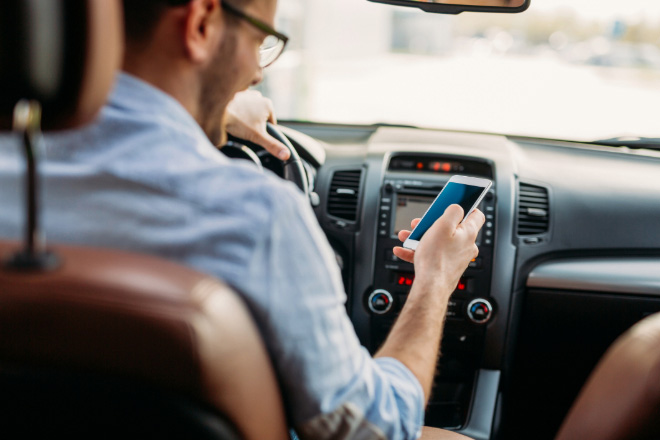Talking on a cell phone and texting while driving has become commonplace, but states are cracking down. According to the National Highway Traffic Safety Administration (NHTSA), at any given time, more than ten million drivers in the United States are using cell phones. In response to safety concerns, some states, municipalities, and foreign countries have banned certain types of cell phone use while driving, such as handheld cell phone use, use of wireless phones by novice or juvenile drivers, or texting. Even if your state does not restrict a driver’s use of cell phones, you should take precautions if using a wireless phone while driving. Here’s what you need to know.
Cell Phones and Driving: The Debate Over Safety
Driver inattention is a primary or contributing factor in 25% of all accidents, but are cell phones a distraction? Some studies have found that the act of dialing or answering cell phones distracts drivers and contributes to increased accident rates. Others have found that the actual act of conversing is the main culprit, especially if the conversations are emotionally charged. Still, others allege that driving while talking on the phone is no more distracting than other common activities conducted in the car, like talking to passengers, eating, or changing the radio station.
What about hands-free devices? Researchers have found that using a hands-free device is not necessarily safer than using a handheld phone. Many drivers spend more time fiddling with the earpieces or headphones of their hands-free device than they are dialing a cell phone, and volume problems with hands-free phones have been cited as creating distractions for the driver.
Some believe that devices such as Bluetooth and similar products in which cell phone calls are transmitted through the car’s built-in microphone may be the safest way to go. However, if the mere act of having a conversation (rather than holding a phone to your ear) is the most dangerous distraction, then these devices may not be any safer than a handheld phone.
Laws Banning Cell Phone Use While Driving
The debate over the safety of driving while using a cell phone has spurred some countries, states, and even local municipalities to ban certain types of cell phone use while driving. Here’s the rundown of those laws.
State Bans
A number of states have outlawed handheld cell phone use while driving or have banned cell phone use for certain types of drivers. Most make an exception for emergency calls to police, the fire department, medical personnel, and the like.
- Handheld phones. 18 states, D.C., Puerto Rico, Guam, and the U.S. Virgin Islands prohibit all drivers from using hand-held cell phones while driving. All are primary enforcement laws—an officer may cite a driver for using a hand-held cell phone without any other traffic offense taking place.
- Novice or juvenile drivers. 39 states and D.C. ban all cell phone use by novice drivers.
- School bus drivers. Twenty states have banned school bus drivers from using cell phones while passengers are present. (For a full list, visit Governors Highway Safety Association website, at www.ghsa.org)
- Texting. 48 states, D.C., Puerto Rico, Guam, and the U.S. Virgin Islands ban text messaging for all drivers. In most of these states, you can be pulled over and cited for texting as a primary offense.
Safety Tips for Cell Phone Use While Driving
Whether your state imposes driving restrictions on cell phone use or not, experts agree that all drivers should take precautions when using cell phones. Here are some suggestions for making cell phone use safer in your car:
- Make calls when your car is not moving.
- Don’t make calls in heavy traffic or bad weather.
- Save your favorites, program frequently called contacts so you’re not dialing numbers.
- Keep your phone within easy reach.
- Never take notes, write messages, or look up phone numbers while driving. If you must do any of these things, pull over.
- When pulling over to make calls or take notes, avoid dangerous areas and lock car doors.
- If possible, ask a passenger to make or take a call for you.
- Keep conversations short and don’t discuss emotional topics.
- If you must dial while driving, hold the phone at eye level so you can see the road.
Connect with an Attorney
Need more information or have questions? Feel free to contact the team at Gingras, Thomsen & Wachs, LLP to learn more about your rights on the road.





